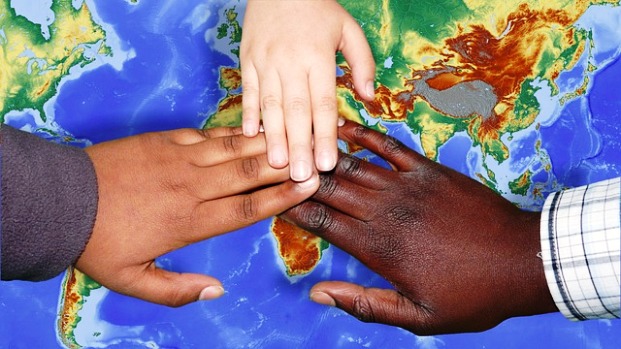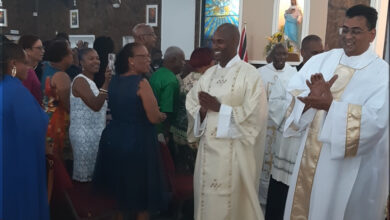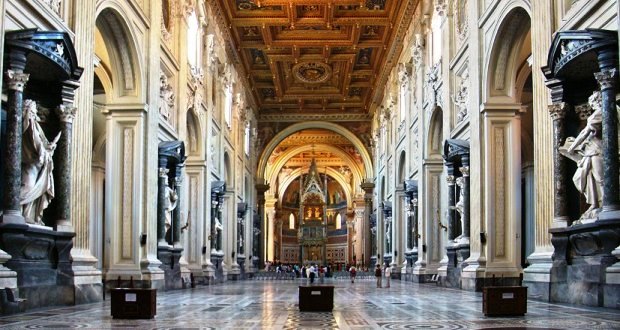Embracing the Universality of God’s Love: Nurturing Inclusivity and Faith

In a world often marked by divisions, it’s easy to fall into the trap of thinking of God as exclusively belonging to a particular group or faith. However, when we delve into the scriptures and teachings of various religions, a common thread of inclusivity emerges, reminding us that God’s love extends to all corners of the earth, embracing believers and non-believers alike. Today, as we celebrate those whose faith differs from our own, we’re reminded of the beautiful universality of God’s love.
Isaiah 56:1-7: Inviting All to the Table
The words of the prophet Isaiah echo down the ages, extending an open invitation to all people to partake in the blessings of God’s covenant. This passage stands as a testament to the inclusivity of God’s love, transcending cultural, ethnic, and religious boundaries. Isaiah’s call to “maintain justice and do what is right” (Isaiah 56:1) underscores that righteousness is the key criterion, not adherence to a specific faith. In a modern context, this ancient wisdom reminds us that God’s love is all-encompassing, embracing both Christians and non-Christians, believers, and seekers alike.
Imagine a scenario in which a diverse group of individuals from different faith backgrounds collaborates on a community project. Muslims, Christians, Hindus, Buddhists, and atheists unite to provide assistance to the homeless. Through their shared commitment to making the world a better place, they embody the spirit of Isaiah’s message, demonstrating that acts of compassion and justice transcend religious labels.
Romans 11:13-15, 29-32: God’s All-Inclusive Plan
In the letter to the Romans, the apostle Paul reveals his unwavering conviction that God’s plan of salvation encompasses all people. Paul, known for his mission to bring the Gospel to both Jews and Gentiles, emphasizes that God’s gifts and calling are irrevocable (Romans 11:29). This speaks to the timeless nature of God’s love, extending to everyone regardless of their cultural or religious heritage.
Consider a scenario where a congregation of believers gathers to discuss outreach efforts. Inspired by Paul’s teachings, they organize a community event that invites people from all walks of life to participate. In this event, diverse individuals engage in dialogues, workshops, and activities aimed at fostering understanding and harmony. Through their interactions, they not only learn about each other’s faiths but also develop a sense of interconnectedness as children of the same universal Creator.
Matthew 15:21-28: A Lesson in Breaking Barriers
The encounter between Jesus and the Canaanite woman serves as a profound lesson in transcending cultural and religious barriers. In this narrative, the woman’s persistence and faith move Jesus to acknowledge her devotion and grant her request. This story exemplifies how faith and determination can lead to the recognition of shared humanity beyond religious distinctions.
Imagine a scenario where a devout Christian and an agnostic engage in a deep conversation about the meaning of life. The agnostic individual, intrigued by the Christian’s unwavering faith, begins to question their own beliefs. Through this exchange of ideas, the agnostic gains a newfound appreciation for the power of faith and spirituality. This scenario echoes the essence of the Canaanite woman’s story, revealing that faith can bridge gaps and transform lives.
The Universality of God’s Love: Beyond Religious Labels
At the heart of the universality of God’s love is the recognition that He is the deity of all people. This understanding encourages us to appreciate the rich tapestry of faiths that exist globally. When people from different religious backgrounds come together for a common cause, such as disaster relief or environmental conservation, their shared values and intentions demonstrate that humanity’s collective pursuit of good transcends denominational boundaries.
In a scenario where representatives from various faith communities gather for a panel discussion, they explore the common principles that underlie their beliefs. As they discuss concepts of compassion, kindness, and service to others, they realize that these values are threads that weave through all faiths. This realization fosters a sense of unity and shared purpose, creating an atmosphere of harmony and mutual respect.
Embracing a Worldview of Inclusivity: Lessons for Today
In today’s world, the imperative to embrace inclusivity is stronger than ever. Divisions based on religion, ethnicity, and culture continue to fuel conflict and misunderstanding. Just as scriptures emphasize embracing diversity, we too should reflect on the impact of our collective faith on the world around us.
Imagine a religious leader who takes the initiative to organize an interfaith symposium in their community. This symposium gathers individuals from various religious backgrounds to engage in open discussions about their faiths. Through sharing personal stories, beliefs, and practices, participants develop a deeper understanding of one another. These interactions lay the foundation for long-lasting friendships and partnerships that extend beyond the event itself.
Conclusion: A Call to Embrace the Universality of God’s Love
As we navigate a world shaped by diverse faiths and beliefs, it’s imperative to remember that God’s love knows no boundaries. Through scriptures for this weekend, we gain insights into the inclusive nature of God’s plan. These teachings serve as a reminder to break down barriers, engage in meaningful dialogue, and to always remember that God’s desire is that ‘all be saved’ – not some; and certainly not a chosen few. God wants all to be saved and come to the full knowledge of Him. Therefore, we too must also strive for this.
Let us always remember the universality of God’s love and the beacon of hope that it holds. It inspires us to foster unity, compassion, and understanding across all corners of the earth. By embracing the universality of God’s love, we pave the way for a world where differences are celebrated, barriers are dismantled, and the human family comes together as one.






